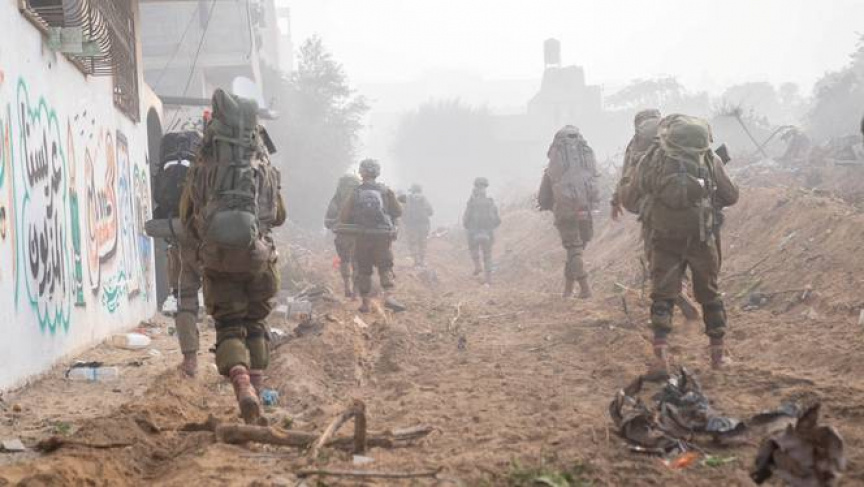
Israeli soldiers: Israel has no information on the whereabouts of its hostages in besieged Gaza, according to a report by official media. (Photo/Reuters Archive)
Israel has no information on the whereabouts of its hostages in besieged Gaza, according to a report by official media.
Despite nearly 14 months passing since October 7, 2023, Israeli army has yet to determine where the hostages are being held in Gaza, said Israel's public broadcaster KAN on Wednesday.
This lack of intelligence is contributing to the nature of its brutal carnage in the blockaded enclave, with military sources expressing concern about inadvertently harming hostages, it added.
The onslaught is constrained by the absence of actionable intelligence on the hostages, the broadcaster cited unnamed Israeli security officials as saying.
This limitation has become evident in recent bombardments, where concerns about the hostages' safety have led to changes in tactics, the officials added.
On Wednesday, Israel announced the recovery of one hostage's remains from Gaza, leaving around 100 hostages still believed to be held in the enclave, according to Israeli estimates.
Blind strikes
Earlier in the day, the Israeli military linked the death of six hostages in Khan Younis in February to an Israeli strike.
"At the time of the strike, the military had no information, not even a suspicion, that the hostages were in the underground compound or its vicinity," the military said in a statement.
"Had such information been available, the strike would not have been carried out."
The statement said it was "highly probable that their deaths were related to the strike near the location where they were held."
Reacting to the findings, the Hostages and Missing Families Forum issued a statement.
"The hearts of Israelis can no longer bear the endless sorrow and pain. The military investigation underscores the urgency of bringing all hostages back home," it said.
On Monday, Hamas said that 33 Israeli hostages have been killed, during Israeli strikes on Gaza since October 2023.
Israel has killed over 44,530 Palestinians, mostly women and children, so far in besieged Gaza.
Its brutal carnage has caused a massive shortage of basic necessities, including food, water, medicine and electricity.
___
Source: TRT